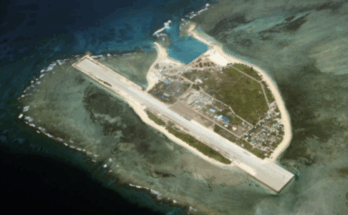A sweeping ban on online gambling could drive the industry underground and worsen its social consequences, a legal expert warned, as several lawmakers push for legislation to prohibit internet-based gaming.
In a 15-page position paper, lawyer and technology policy expert Tonet Quiogue, head of Arden Consult, warned that banning licensed online gaming operations could undermine the government’s ability to control illegal gambling.
Quiogue also cautioned that such may pave the way to an expanded black market where gambling operations will be done underground.
The paper came in response to recent Senate bills seeking a total prohibition of online gaming, including measures filed by Senators Pia and Alan Peter Cayetano, Joel Villanueva, Sherwin Gatchalian, and former Senate President Migz Zubiri.
What’s being proposed?
Several senators have filed bills seeking to ban online gambling. These measures cite concerns about crime, fraud, and moral degradation allegedly linked to the industry.
The proposals assume that gambling itself is the problem — often describing it as inherently criminal or immoral — and seek to eliminate all forms of online wagering, whether legal or not.
Quiogue, however, argued that the premise of these bills is flawed.
“The real enemy is illegal gambling,” she said.
“These are operations that evade taxes, ignore regulatory standards, and expose players to real harm.”
Under the current system, the Philippine Amusement and Gaming Corporation (PAGCOR) issues licenses to online gaming platforms and strictly audits them for fairness, security, and financial transparency. This includes: Independent software certifications to ensure games aren’t rigged, real-time monitoring of suspicious transactions; and Strict compliance audits to prevent abuse or exploitation
By contrast, unlicensed platforms — often run offshore or through clandestine local networks — are where the actual criminal activity occurs, from money laundering to human trafficking. And when these platforms thrive, the state loses both tax revenue and its ability to protect Filipino players.
What happens when countries ban gambling outright?
Quiogue’s paper also draws on international examples to show that prohibition rarely works.
She cited that countries like China and Vietnam, which enforce outright bans, continue to battle thriving underground gambling operations.
In contrast, jurisdictions such as Sweden and the UK have opted to regulate online gaming, leading to stronger oversight and greater player migration to legal platforms.
Quiogue urged lawmakers to focus on evidence-based policymaking and reject reactionary bans that dismantle working regulatory mechanisms.
“Blanket bans do not solve the problem—they create new ones,” she said.
“The public must see through the rhetoric and support solutions that truly protect Filipino families.”
“Banning licensed operators won’t stop gambling,” she noted. “It only means people will turn to platforms that the government can’t monitor, tax, or control.”
What’s the alternative?
Quiogue and other experts advocate for evidence-based regulation instead of bans. This includes strengthening PAGCOR’s monitoring tool; increasing penalties for illegal operators; enhancing consumer protection mechanisms; and investing in education about responsible gaming.
Crucially, it also requires public participation.
“We must resist fear-driven policymaking,” Quiogue said. “The goal should be to protect Filipinos — not to destroy working systems and invite new crimes.”





